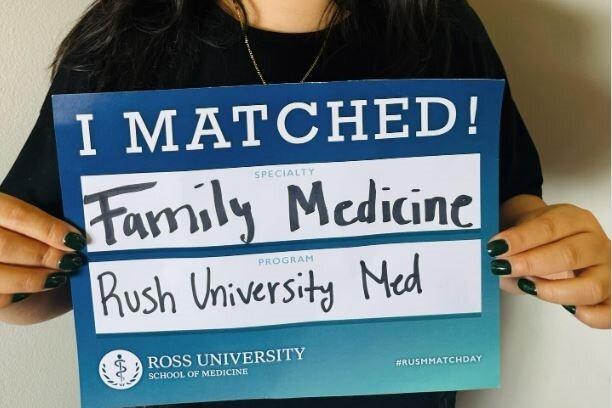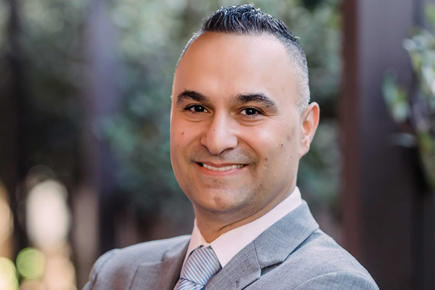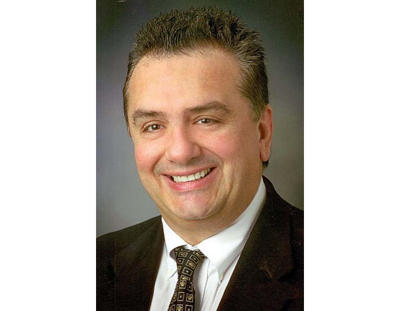He had already had been waitlisted at two United States medical schools, had taken the MCAT twice, and had applied to Ross University School of Medicine (RUSM) only after a friend mentioned the school in passing. He was granted conditional acceptance to RUSM, on the condition that he successfully complete MERP before starting as a first-semester med student.
“It was a shot to my ego,” remembers Dr. Fasusi. “But it fueled a fire in me, and I realized I had two decisions: either wait to see if I could possibly get into one of those two US medical schools, or take the RUSM opportunity now.”
He chose the latter. And he’s glad he did. After graduating from RUSM in 2010, he matched into the surgery program at Medical College of Georgia in Augusta. Today he’s in his final year of residency training, and serves as chief resident.
On Lectures: “They Were Some of the Best I’ve Ever Had”
After entering MERP, Dr. Fasusi quickly realized the program had real value. At MERP, instructors help students build strong foundational knowledge in the basic sciences, and teach students helpful advice and techniques for studying and retaining information.
“It was such a blessing to attend MERP, because it literally gave you a framework to optimize your studies when you start medical school,” he says. “It gives you an organized group of people that you feel comfortable studying with. And the professors, the lectures—they were some of the best I’ve ever had. I can remember them in my head right now. That’s how good they were.”
A “Seamless” Transition from MERP to Medical School
After completing MERP, Dr. Fasusi went on to learn the basic sciences through RUSM’s Foundations of Medicine curriculum, based in Dominica. And, it turns out, MERP did more than give him the foundational knowledge he needed to thrive as a medical student. It also meant that he’d already know some of his fellow students when he started his first semester at RUSM. After all, they had all been through MERP together.
“I have an uncle in Dominica—a dentist on the island—so going in, I knew I wouldn’t be totally without a support system,” he says. “But even if I didn’t have my family there, the people I went to MERP with made up such a cohesive group that it was a seamless transition from MERP to medical school.”
“I Wouldn’t Change Anything”
After completing Foundations of Medicine, then his clinical clerkships in the United States, Dr. Fasusi decided to complete a year of research at the Medical College of Georgia, where two of his friends were undergoing residency training. Doing this would allow him to strengthen his residency applications even more, he reasoned.
“What I was doing was a sort of pro bono research,” he says. “But it was great experience, and they loved me so much that after a couple of weeks, they told me that they’d find a way to start paying me. And they had me involved in multiple areas—not just surgery. I was helping with neurology, ENT, and other disciplines. At MCG, generally, you’re paired with one principal investigator during research, and you only work on that one project. I was doing six or seven.” (MCG did deliver on that promise to pay him, he adds.)
In his time at MCG, Dr. Fasusi made enough of an impression that many program directors and residents there wanted him to stay for his surgery residency, which he did. Now in his fifth and final year as a surgical resident (and chief resident), Dr. Fasusi is looking forward to his next step—a three-year plastic surgery fellowship, also at MCG. He didn’t even have to match for this position: “The plastic surgeons work with me very closely, they know me very well, and they offered me a spot outside of the Match,” he says. He got one of two open fellowship spots, and is the first RUSM graduate to earn a plastic surgery fellowship at MCG.
His time at MERP and RUSM, Dr. Fasusi says, really paid off in the long run.
“I work with wonderful people, I get fantastic training, and I have wonderful opportunities,” he says. “I wouldn’t change anything.”



